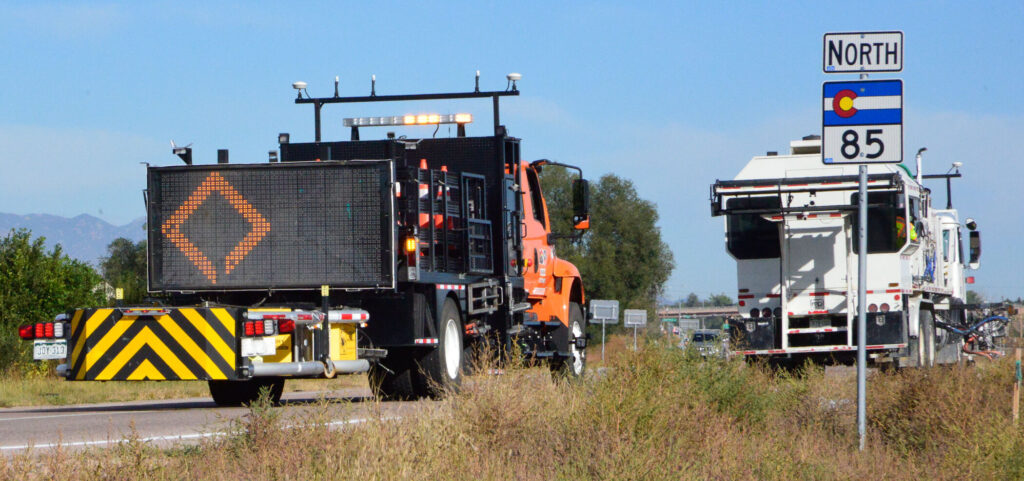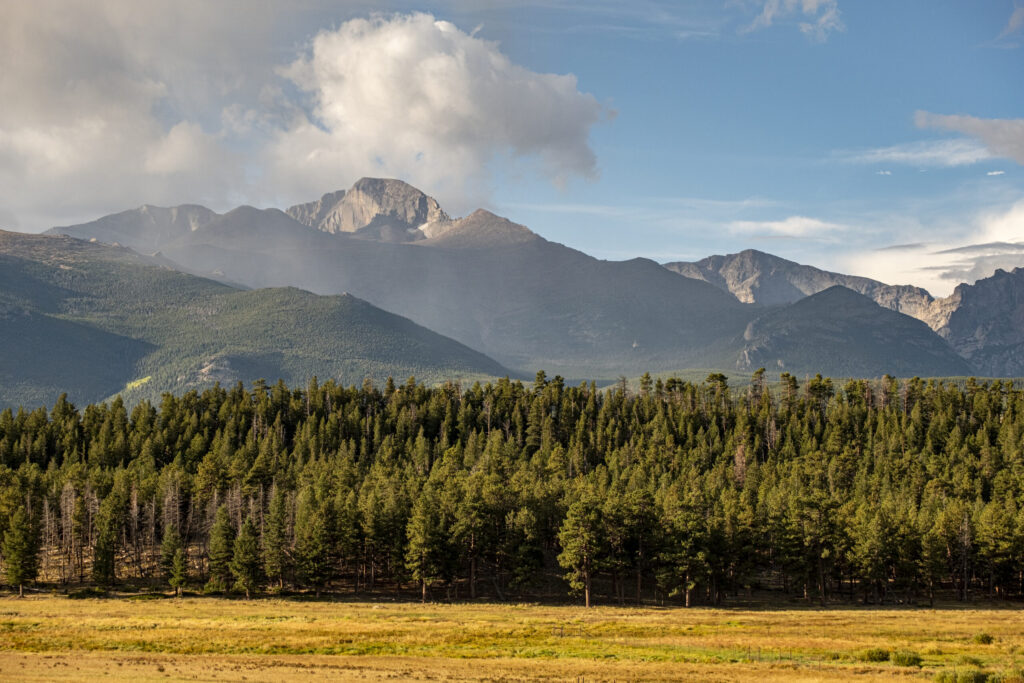Denver pot initiative could steer legislative response to thorny public use question
Denver voters could dictate how a marijuana consumption bill is crafted at the Capitol next year, if an initiative that allows pot use at some city businesses makes it on the November ballot.
But, regardless of what happens in Denver, state lawmakers must soon address the issue over what constitutes as public or private marijuana use, said Rep. Jonathan Singer, D-Longmont.
The thorniness around that issue has led to a charged debate over where pot users, especially tourists, can legally consume the drug.
“I think it really has to be addressed, because we’re going to keep having this argument,” Singer said. “We need to make sure we have an open and public discussion about the definition of open and public.”
Colorado statute prohibits marijuana use “openly and publicly or in a manner that endangers others.”
But state law does not preclude private consumption. So, there’s been some stickiness over the definition of public and private use. That’s led some cities to grapple with the issue and put in place their own regulations whenever private marijuana clubs open shop.
To deal with that issue, Singer — who has helped craft pot regulations at the Capitol, including the current sales-tax system — is kicking around the idea of proposing legislation that would allow marijuana to be sold and consumed at pot-only bars.
They would be the “cannabis equivalent to bars,” Singer said. In other words, just as a bar sells drinks, “budtenders” would sell pot.
“Honestly, we’ve had bars in Colorado for probably close to a century, and it’s worked pretty well,” he said. “So, I don’t see why we can’t do the same with marijuana.”
In the alternative, Singer might consider legislation that clarifies state law, which would formally allow for the set-up of private clubs, where users could bring and consume their own pot, but where the drug isn’t actually sold.
That model is currently in use in Pueblo and Nederland, where local laws allow for limited, on-site consumption at private pot clubs. Private pot clubs also exist in Colorado Springs, with city regulations in the works there.
Either effort would address the existing need for pot users to consume pot legally in a regulated, controlled environment, Singer said.
“It really boils down to fairness,” he said.
Denver proposal receives pushback
How the bill is written will depend on how Denver voters respond to a potential ballot proposal that would allow bars and restaurants there to have on-site areas for pot consumption.
“That will really inform what I want to do,” Singer said. “If the initiative is popular and passes by a large margin, that sends a message to the Capitol. If it’s close, that causes me to retool.”
Backers of the Denver initiative say the measure would address something that immediately became an issue after recreational marijuana sales were legalized by passage 2012’s Amendment 64.
“We created a system where people can lawfully purchase marijuana, but they can’t lawfully consume it anywhere,” said Christian Sederbeg, a marijuana attorney and an author of Amendment 64.
Sederberg is referring to visitors to the state who are allowed to purchase pot here, but, because of state law, have few places where they can actually smoke it.
The initiative would give bar and restaurant owners the option to allow pot and alcohol to be consumed together, in one area.
The current initiative language would allow adults 21 and over to consume marijuana in designated areas at venues that allow its use. Patrons would have to bring their own weed.
The initiative would allow outdoor pot smoking in areas that are out of public view.
Venues that allow pot consumption still must comply with the 2006 Colorado Clean Indoor Air Act, which prohibits cigarette and cigar smoking in most bars and restaurants. However, patrons are allowed to smoke on patios outside many bars in the city.
Sederberg said the initiative would allow business owners to choose whether pot can be consumed at their establishments and what activity is allowed. He said, for example, bars could require patrons who consume pot to wear wristbands. And the venue could dictate whether a person who is using pot can also be served alcohol.
The Denver City Council would have the purview to set whatever restrictions it feels are necessary, he said.
Sederberg stresses that this proposal is not about making the drug more widely available.
“This is not about expanding what’s happening,” he said. “This is about dealing directly with issues that have been raised since (Amendment 64) passed.”
“Where do people go to consume marijuana? They don’t want to break the law and use it in their hotel rooms, but there needs to be a place where people who come here can consume marijuana.”
But don’t count on Singer and certain business groups to embrace the initiative.
Singer could be looking to Denver voters for guidance on how to craft his bill, but he feels the city initiative goes too far.
“I’m not sure a lot of bar owners want to take a risk of two intoxicating substances on the premises at the same time,” Singer said.
Both the Colorado Restaurant Association and the Tavern League of Colorado have concerns about the proposal. Chief among them is the possibility of increased liability that would come with owners who allow pot to be consumed at their businesses.
Carolyn Livingston, a spokeswoman for the CRA, said that businesses that allow pot use where alcohol is sold could have an impact on the owner’s liability insurance coverage.
Livingston also points to studies that show how alcohol can enhance the effects of marijuana, which she said would create a “red flag” for businesses. And it puts servers in a difficult position trying to determine a different kind of intoxication, which they might not be trained to gauge.
“We understand the alcohol liability,” she said. “We have training in how to safely serve alcohol and folks totally understand that. But adding marijuana creates another liability.”
David Reitz, executive director for the Tavern League of Colorado, also worries about the intoxication “multiplying effect” that he thinks could put business liquor licenses at risk.
“You may be in a situation where maybe you’re only serving a person one drink, then they start to look drunk, even though they’ve only had one (drink),” Reitz said. “It’s pretty hard to know what was the root cause of the intoxication.”
But that kind of dual intoxication is already going on, Sederberg said.
“People are already consuming alcohol and marijuana at the same time,” he said. “They go outside the bar or smoke at home before going out. This is behavior that’s already happening. Like alcohol, there is a personal responsibility element. We just feel it’s better to have an honest conversation about public safety.
Organizers need about 5,000 signatures by early September to get the initiative on the fall ballot. Sederberg believes Denver voters will side with his argument.
“In Denver, we have legal sales of marijuana, but we have no place to go. (Through the initiative), we’re creating a very restrictive allowance that will create places subject to regulation by the city to give people a place to do exactly that.”
Opponents say they understand that argument. But they also say that just because some folks have nowhere to go to smoke the drug doesn’t mean it’s a problem that business owners have to deal with.
“We don’t have a problem with pot being in Colorado, we just don’t want it being consumed in our establishments,” Livingston said.
Without legislative guidance, pot activists in cities across the state will continue to put forth “ambitious” proposals like the one in Denver, Singer said.
“This really feels more like a shot across the bow to lawmakers to get something done,” Singer said of the Denver effort. “This is about as ambitious as the rules of the game are ludicrous right now.”
— Twitter: @VicVela1











